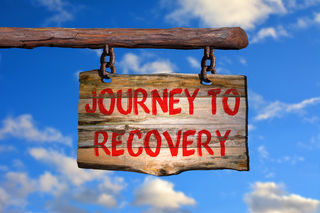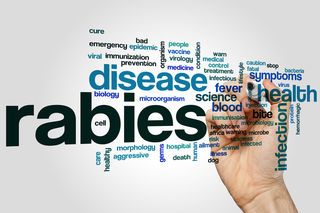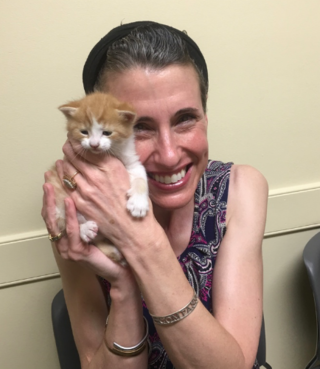OCD
Taming OCD and Reclaiming Your Life
Six steps to make the most of your recovery journey.
Posted May 30, 2018

My OCD is often very worried about my recovery from it. It likes to ask, “What if we’re not doing our maintenance ERP therapy well enough? What if we aren’t really better? What if we just think we’re better, but we’re not?”
I know. You can’t help but laugh at the irony of these particular concerns.
My OCD is particularly obsessed about what I share publicly about my own recovery, as this conversation from the penultimate chapter of my new book, Is Fred in the Refrigerator? Taming OCD and Reclaiming My Life, illustrates:
“I don't think we should write this next story, Shala.”
I stopped typing and looked at my OCD staring up at me, a lonesome tear beginning to peek out from underneath its overlarge sunglasses. Reaching over and handing it a tissue, I tried to be as kind as possible as I said, “I know you don’t, OCD, but this story is really important.”
“But if you write it, people will think we are mentally ill!”
Snot dripping down its face, my OCD started to cry in earnest.
My poor OCD. I smiled slightly as I replied, “Well, technically we do have a mental illness or two.”
Blowing its nose noisily, it stopped crying long enough to share its latest doom-filled litany of woe.
“Maybe it’s okay to write about it if we’ve made progress, but this chapter will show everyone we still have problems that we’re just figuring out how to solve, and if people know that, they won’t like us or trust us or think nice things about us and we’ll be ostracized and you won’t have a job anymore and we’ll be lonely and probablyendupstarvinganddead!”
Pulling another tissue out of the box, I held it up as my OCD blew its nose again.
“Yes, OCD, all of that may happen. But this story is important because people need to know what it’s really like to live with lifelong mental illness….. [and] that recovery is a process, a long one at times, and it isn’t perfect, and that’s okay. We are all works in progress. Even those of us who help others for a living.”
What does recovery mean?

One of the main reasons I wrote Fred was to share that recovery is a process. We all want to get better—to tame our OCD monsters—as quickly as possible, but the truth is that there’s no magic number of months or years before we’re “better.” Sure, it might be on average x number of sessions before our scores on the Yale-Brown Obsessive Compulsive Scale hit the subclinical range, but as I share in Fred, recovery is about much more than that. It’s about learning to live life to the fullest, even with your monster sometimes tagging along for the ride, and this ride can be a little bit of a messy, zig zaggy, two steps forward, one step back process. And all that is okay, because as Susan David says in her brilliant TED Talk, discomfort is the price of admission to a meaningful life.
How can you get back to living a meaningful life if you have OCD? Here are six summary steps for making the most of your journey:
1. Find a therapist trained in ERP.
After I was diagnosed with OCD, I saw six mental health practitioners (three psychologists, two psychiatrists, a social worker, and a partridge in a pear tree), none of whom ever mentioned exposure and response prevention therapy (ERP), the evidence-based treatment for OCD. It would take me another 13 years from the time I received a diagnosis until I stumbled across ERP at my fateful first International OCD Foundation (IOCDF) conference.
Lots of people say they treat OCD. But if they do not use ERP, they don’t. Use the IOCDF’s list of questions to ask treatment providers and their database to find qualified therapists. Therapists who have been through the IOCDF’s Behavior Therapy Training Institute (BTTI) are notated in the directory.
2. Remember that getting better has nothing to do with OCD “content.”
What’s content? Let me explain with a little vignette from Fred:

In the short month I had been in grad school, I had already discovered a colony of feral cats on campus, and animal lover that I was, had begun feeding them before my classes. Wasting no time, OCD pressed its advantage when I dropped the feral cats’ water bowl one night before I’d refilled it, splashing used water all over my face and directly into my eyes, nose, and mouth. You just gave us rabies! it screamed, coming unglued. Wrapped up in OCD’s fatalistic but scarily believable fairy tale that ended with my dying a tragic death, surrounded like Disney’s Snow White with adorable (but rabid) woodland creatures, I didn’t do ERP. Instead, I spent hour after hour on the Centers for Disease Control website researching how likely it was I could get rabies from that potentially saliva-infected water. OCD: 1. Shala: 0.
That’s content: all that scary stuff OCD uses to get you hooked into its little game of “just check this one little page on the CDC website and then you’ll feel SOOOO much better.” We all know how that goes. Getting better is not about that—that’s how we stay stuck. Getting better is about learning to handle a generic sense of doubt and uncertainty. ERP teaches us how to learn to live happily with that uncertainty.
By the way, everyone’s OCD likes to think it’s special. Mine certainly does. And YOU are special. But your OCD isn’t. So don’t let it tell you that its particular variety of content is immune to ERP. That’s a bunch of bulls!*t (for more on swearing at your OCD, see The Hidden Power of Swearing at Your OCD: Three ways to use the art and science of cursing to power up your recovery.)
3. Turn your recovery into a game where your goal is to make yourself anxious and uncertain on purpose.
As Reid Wilson, PhD, wrote in the Afterword of Fred:
You will not win over the disorder by going toe-to-toe with OCD in a battle over its frightening logic. You must work paradoxically. Is Fred in the Refrigerator? is brilliantly alive with this paradoxical strategy. Use Shala’s memoir as your empowering inspiration. Personify OCD as this trespasser into your life, and employ your new, clever strategies to diminish the power of this intruder by moving toward uncertainty – not away from it.
4. Make therapy a priority…
Currently, the only way we know to tame the OCD monster is to do ERP. Often. Aggressively. And with glee. I got to the point where I loved the sadistic little game of torturing my OCD:

Back at the hotel after dinner, when OCD gave me thoughts of my beloved dogs Bella and Lily being tortured, I decided to just let those thoughts be there. In fact, why not change them up just a little, and insert me into the scenes as the one doing the torturing, doing the killing?
Do you like that, OCD, you little bastard? My anger bubbled over, fiery and molten. Dr. Wilson had been the first person in my life to acknowledge that of course I was angry, that of course all of us in the group were angry. And that we could use that anger at our OCD to fuel our recoveries.
I poked and prodded my OCD, channeling my anger to turn my disorder’s own savagery against it, until it once again lay on the hotel room floor, sobbing and begging piteously for mercy.
So make doing to your OCD what’s it’s been doing to you your priority. That’s how you get better faster.
5. ….but give yourself a break when life doesn’t go as planned.
But man, life happens. And OCD will sabotage your best efforts at times (it certainly did mine). So even though I recommend you make doing your ERP a priority, I also recommend that you offer yourself compassion when life happens and you end up doing a compulsion (because hey, it’s happened/happens to me, too!) or you don’t get to do your ERP homework or something else hijacks your recovery plans.
If you beat yourself up when things don’t go well, that just lays the foundation for more OCD. It loves beating you up. Don’t treat yourself like it treats you. Be nice to yourself. Even when, or maybe especially when, things don’t go as planned.
6. Recognize recovery is a journey and define success as finding as many little victories as you can along the way.
When I was 25, my mom made a cross-stitch piece for me that says, “Happiness is found along the way—not at the end of the road.” She stitched it for me because I, like many of us, struggled with the concept of enjoying the journey. I would think, “Once I get there (wherever there is), I’ll be happy.”

We all know that’s a mirage, but “there” still shimmers in the distance, promising palm trees and cool water and happiness, e.g. “I’ll be happy when my OCD stops bothering me so much.”
And yes, while it is true that it’s easier to be happier when OCD is tame, we can find moments of joy and happiness along the way if we define success by something other than being rid of OCD. Because we unfortunately can’t get rid of it completely. So define success in terms of little victories along the way, such as realizing how the exposure you just did was actually easier than when you first tried it three weeks ago, or recognizing how you were able to be a lot more present for your daughter’s piano recital last night, or celebrating the fact that you just heard what your OCD said to you and you laughed in your head at how ridiculous that particular obsession now sounds.
After all, it’s when we’re waiting for life to happen that it actually does.
Serendipity
I was at the vet’s office with my dog a few weeks ago. I know the staff could tell I was frazzled, as I sat in the exam room frantically shifting my gaze between my laptop on one knee and the final proof of Fred on the other while my dog nosed around trying to make herself invisible under my chair. I was working while at the vet’s office to meet a fast-approaching deadline for sending the book to the printer—a book whose title came from the fact that I used to obsess that my orange-and-white cat Fred was in the fridge.
Then in walks one of the techs with an orange-and-white kitten held gently in her hands.

“You need a kitten right now,” she said to me, putting him on my laptop.
“Oh, I DO need a kitten right now! Thank you!” I replied, picking up the tiny, mewing ball of fur. No one can resist kittens, even on a proofing deadline. “What’s his name?”
“Fred. His name is Fred.”
Well, what do you know?
Then, as Fred wriggled around in my hands, one of his toenails scratched my finger. Right on cue, my OCD said in a voice oh-so-reminiscent of the way it carries on in the last chapter of Fred, when I actually do come in contact with a wild animal known to carry rabies: “Oh my gosh! We are going to get rabies! We’re not even going to see our book published because we’re going to ddddiiiiieeeee!!!!!”
Sigh. Life with a monster. As I felt my anxiety spike, I tried to remember that this is all part of the journey. I’m proud to say I did not ask the vet whether this tiny kitten had had its rabies shots yet. It’s something I will never know. And I’m going to live happily with that uncertainty, because that’s how I keep my OCD tame and my life my own.
For notifications of new blog posts as well as OCD-taming tips & resources, sign up for my Shoulders Back! newsletter.
These blog posts are not a replacement for therapy, and I encourage all readers who have OCD to find a trained ERP therapist. See the IOCDF treatment provider database for a provider near you.




